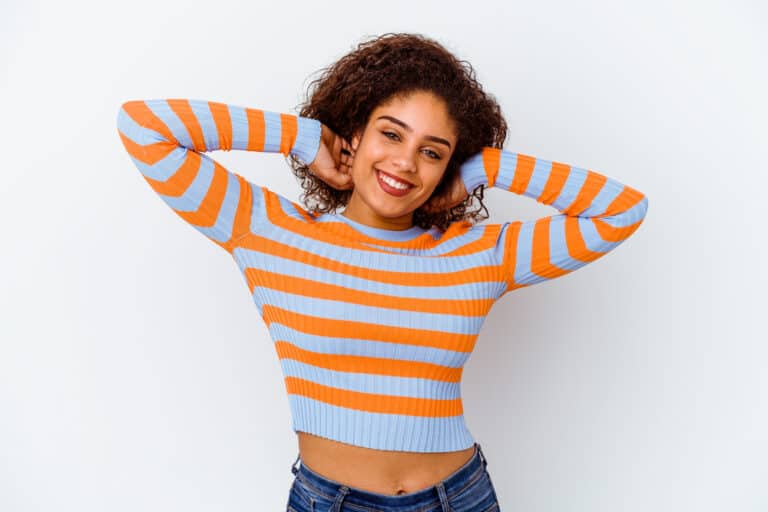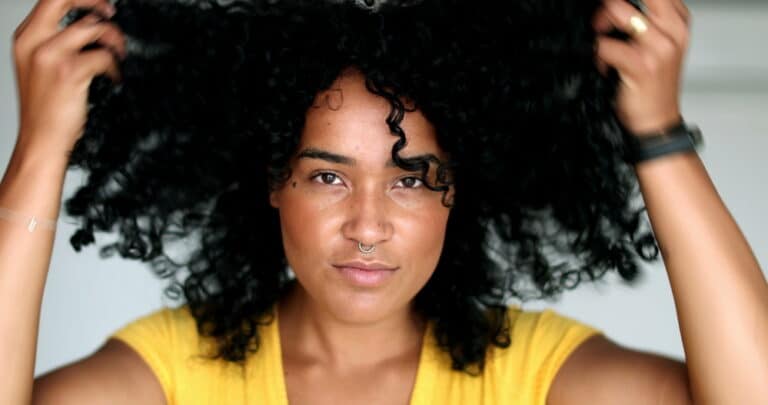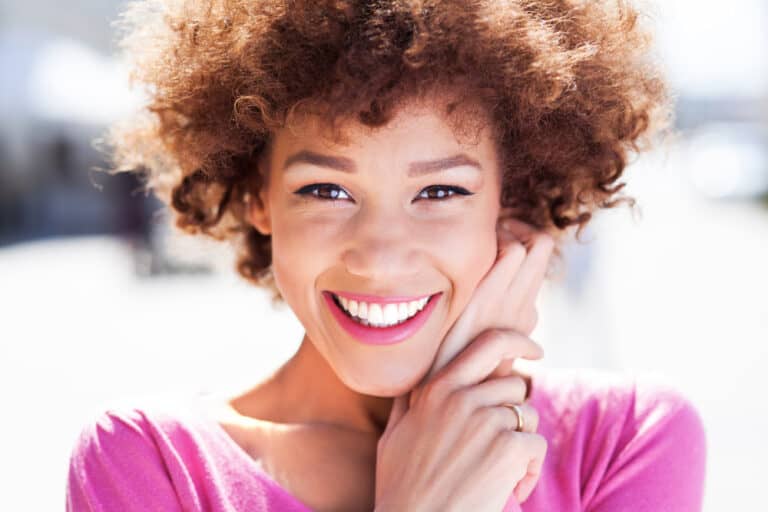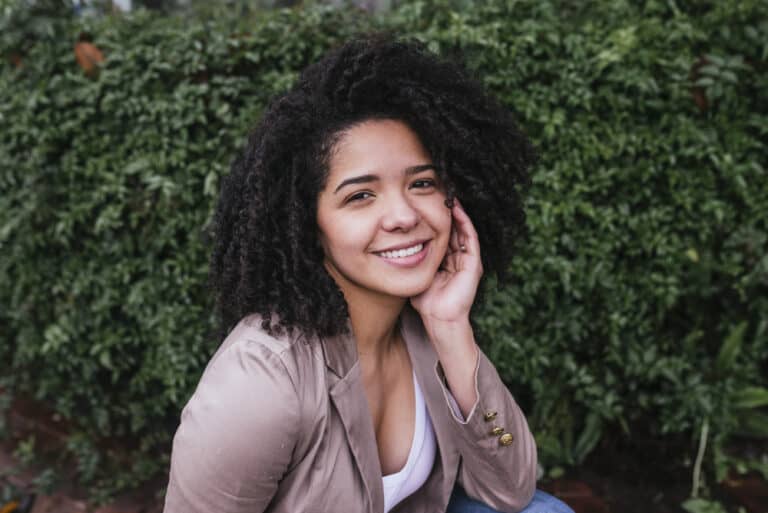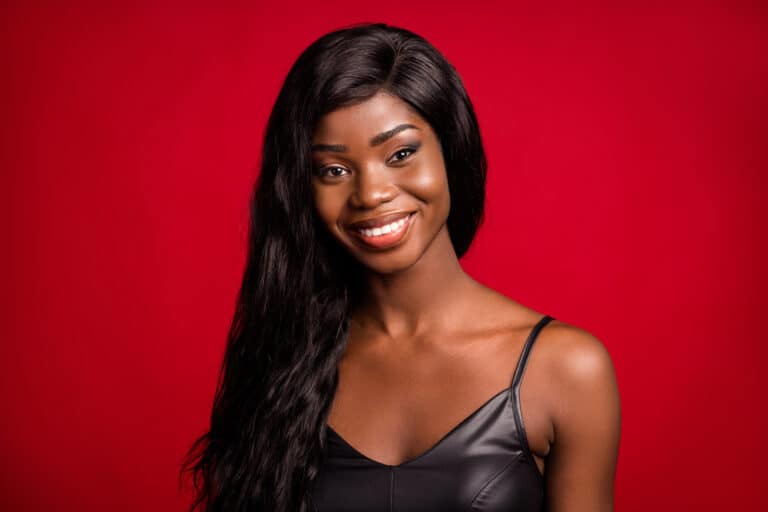Can Benzoyl Peroxide Bleach Hair? Lighten? 2.5%? 5%? 10%?

Most people who suffer from acne have probably heard of the holy grail ingredient, benzoyl peroxide. It’s such a popular product that even dermatologists consider it the gold standard in acne treatment.
If you’ve ever used products containing this ingredient, you may have noticed that it bleaches your clothing items and towels, but can benzoyl peroxide bleach hair?
We’ve got the answer to this question and more in this article. Let’s get right into it!
Table of Contents
What Is Benzoyl Peroxide?
Benzoyl Peroxide is an artificial ingredient that was discovered more than a century ago. It is an antimicrobial agent that treats a group of bacteria called Cutibacterium acnes (C. acnes), which is thought to contribute to skin inflammation and acne.
Benzoyl peroxide pops up in many different product types, including body washes, face washes, lotions, creams, and gels.

Can Benzoyl Peroxide Bleach Hair?
Yes, benzoyl peroxide can bleach your hair. What many don’t know is that benzoyl peroxide has uses that extend beyond acne treatment. The ingredient is a well-known bleaching agent that’s used for industrial purposes.
So, it is no surprise that benzoyl peroxide can bleach your curls to an unexpected lighter shade. The chances of unwanted bleaching (hair lightening) are heightened if you use benzoyl peroxide often and at high concentrations (10% vs. 2.5%).
However, the overall chance of your benzoyl peroxide acne treatment turning your hair a different color is low. Still, people have experienced benzoyl peroxide lightening their eyebrows and hairlines, and it’s no fun when that happens.
Other Effects of Benzoyl Peroxide on Hair
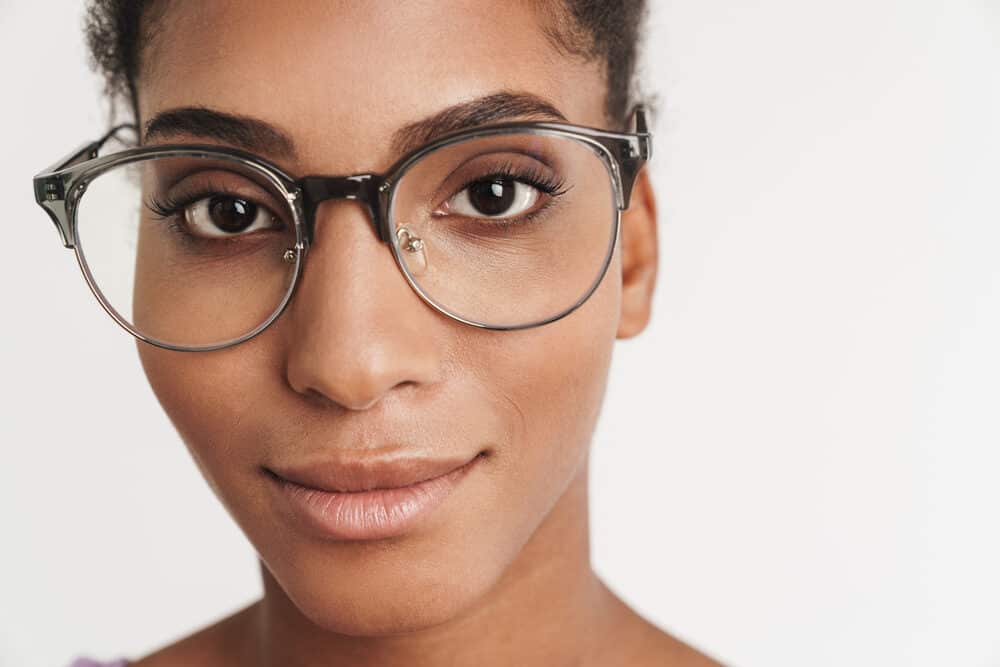
Bleaching is not the only issue that people have with benzoyl peroxide. The chemical can cause some other hair issues, as well:
- Dry hair and itchy scalp: Benzoyl peroxide has keratolytic properties, which help with skin exfoliation and peeling. For this reason, it can dry out your hair when it comes in contact with it. This is a big issue, especially for people with curly hair, being that textured hair is prone to dryness as it is. And when you apply acne treatments to your face, your edges are most likely to get a dose of it as well – this is the most fragile part of your hair.
- Inflammation of hair follicles and hair loss: Benzoyl peroxide can cause inflammation in the hair follicles. When this is left untreated, the hair follicles may not be able to work properly. Hair loss due to follicle inflammation is not unheard of, either. But it’s important to know that these reactions to benzoyl peroxide are exceedingly rare.
How to Keep Benzoyl Peroxide Out of Your Hair
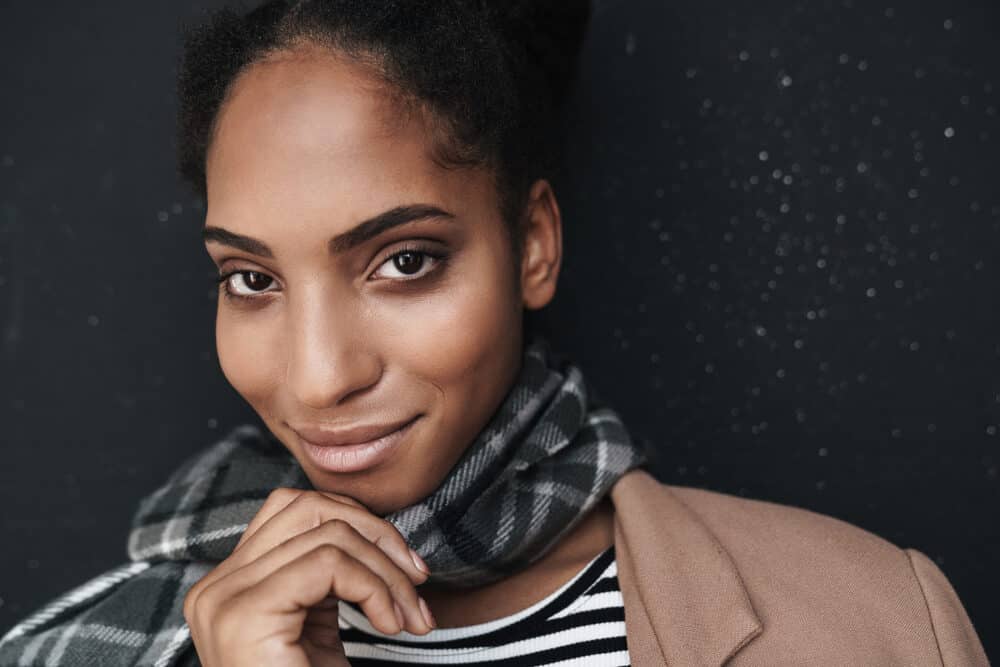
There’s no doubt that benzoyl peroxide is exceptionally effective in treating acne, so if you want to continue using it, you can. You just have to be mindful of where you apply it.
Here are some tips you can use:
- Choose a wash-off treatment like a face wash. Since these don’t stay on the skin long, the chances of them bleaching your hair are low.
- Cover your hairline with a headband. With your hair covered, there’s virtually no chance of the benzoyl peroxide making contact with your skin. Just be sure to cover all of your hair with the headband – watch those loose strands!
- Use your acne medicine as a spot treatment instead of applying it to your whole face. If you apply it only to your acne spots, there’s a lower probability of it getting on your hair. This works as long as the acne isn’t along your hairline.
Alternatives to Benzoyl Peroxide for Facial and Scalp Acne
It can be challenging to keep your acne treatments from getting in your hair. And if you don’t want to make special concessions to keep benzoyl peroxide on your face and not in your hair, the answer may be to switch up your acne treatment.
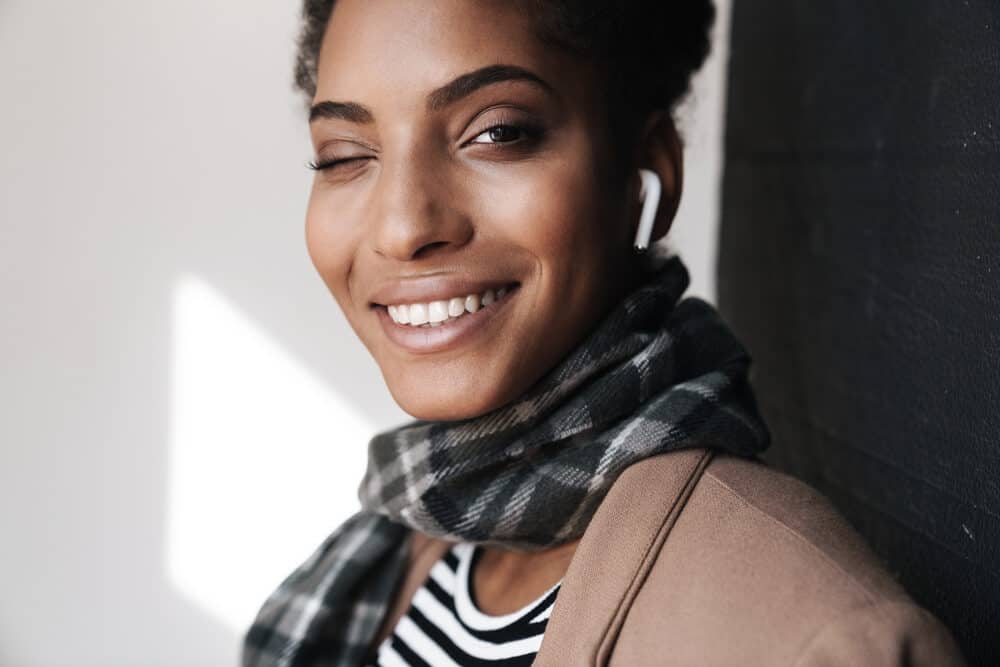
There are several alternatives to consider, and we’ll outline each of them below:
Salicylic Acid
Salicylic acid is a fantastic acne treatment that does two things: (1) it penetrates the pores and hair follicles to remove excess sebum oil and (2) exfoliates (shed) dead skin cells that clog the pores and cause acne. Since it is oil-soluble, it’s great for oily to combination skin.
Thankfully, salicylic acid is not a bleaching agent, and it’s incapable of changing your hair color. You’ll even find shampoos and other hair products with the ingredient in them.
So, you can apply your salicylic acid-containing acne treatment freely – the chances of it affecting the color or condition of your hair are virtually non-existent.
If you’ve never used salicylic acid before, we recommend speaking to your primary care physician or dermatologist. The acid can cause adverse skin reactions, just like benzoyl peroxide, but it is not believed to cause follicular problems or hair loss.
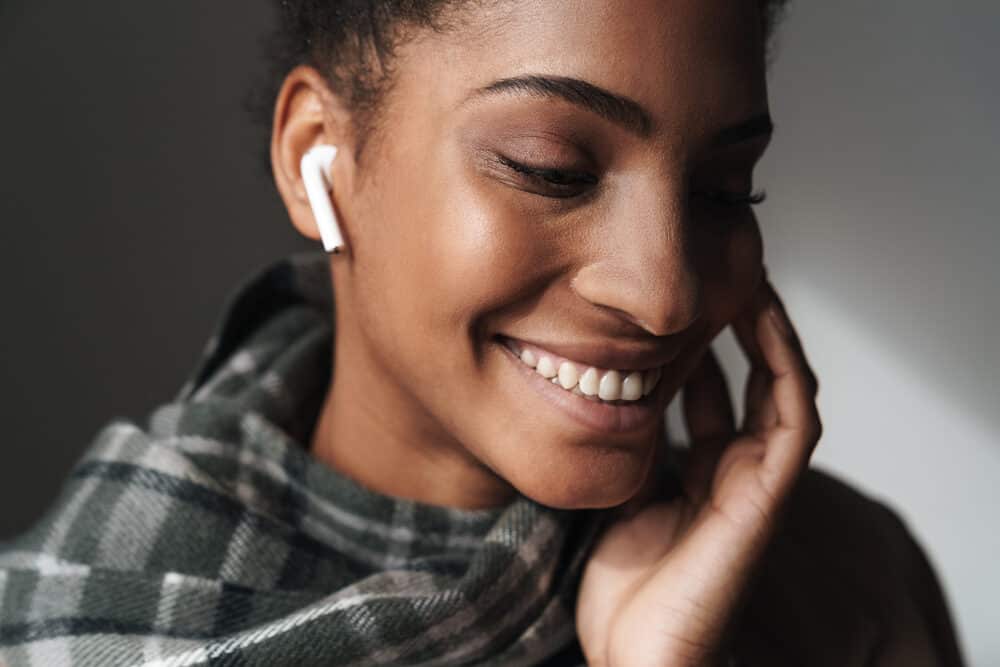
AHA
Alpha Hydroxy Acids (AHAs) are acids derived from fruits. They have antimicrobial properties just like benzoyl peroxide and exfoliate away dead skin.
AHAs work by reducing the amount of gunk in your pores, thus decreasing breakouts.
Glycolic acid is a popular AHA that has antimicrobial properties that will help in treating your acne. It’s also a miracle hair remedy that has the following benefits:
- Conditions your hair, leaving it softer and smoother.
- Strengthens the hair, thereby reducing breakage.
- Promotes lasting hydration even on damaged hair.
- Protects hair from damage during heat styling.
This acid also doesn’t bleach hair, so you’ll have nothing to worry about if you accidentally get it in your curls or brows.

Azelaic Acid
Azelaic acid is a lesser-known ingredient that is also great for treating acne. It gets rid of bacteria that cause irritation and acne flare-ups. It also gently exfoliates by encouraging skin cell turnover and reducing inflammation.
This acid is also ideal for treating the hyperpigmentation and scarring that often results from acne scars. The acid is also not found to bleach hair, skin, or clothing. Use it to your heart’s content – with permission from your doc, of course!
Tea Tree Oil
Tea tree oil is a plant oil extract traditionally used to treat wounds and other skin ailments. This is because of its antimicrobial properties. It can be used to treat acne and reduce the swelling that sometimes comes along with it.
Tea tree oil is best used as a spot treatment, but it should be diluted with a carrier oil like coconut oil. There hasn’t been any speculation about tea tree oil bleaching hair; perhaps this is because tea tree oil has no bleaching properties.
So, you can feel free to use the oil (along with a carrier oil) on your skin. It won’t lighten your facial hair or hairline.
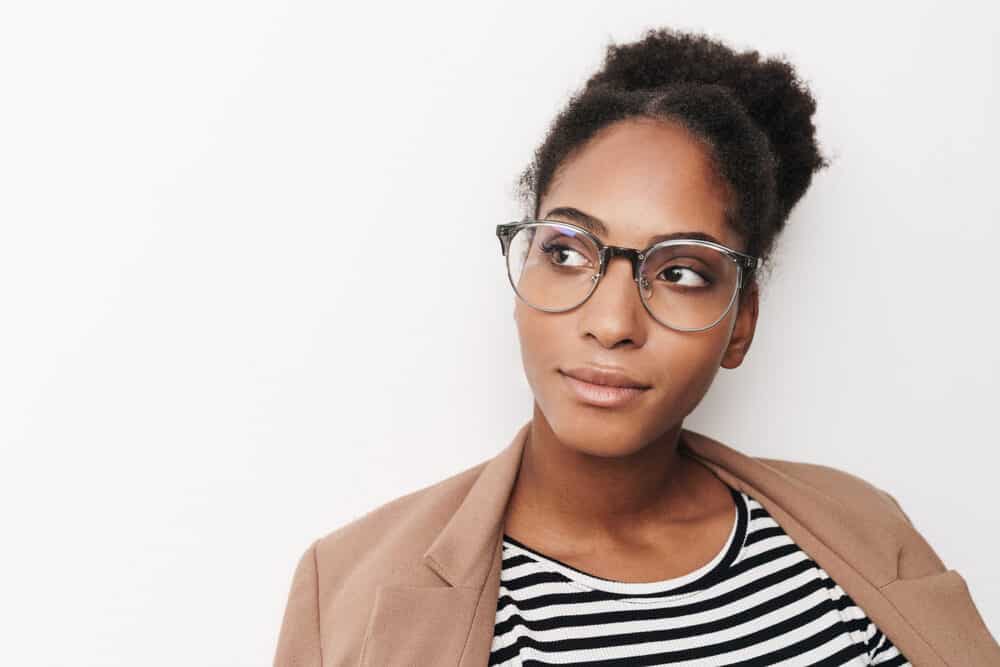
Read Your Product Labels
If you’re trying to avoid benzoyl peroxide-containing products, it’s important to read the labels on all of your personal care products. The ingredient can pop up in products you wouldn’t even think of, including:
- Epiduo
- Epiduo Forte
- Benzaclin
- Benzagel
- Acetoxyl
- Alquam-X
Note: This is not an exhaustive list of benzoyl peroxide acne treatments.
- How to Lighten Hair Without Bleach Quickly
- How to Bleach My Dreads
- How to Bleach Bath Hair at Home
- Does Bleach Always Damage Your Hair?
As you can see, benzoyl peroxide can change the color of your hair. But there are several measures you can take to prevent this.
But if you’d rather forego benzoyl peroxide and try another acne treatment entirely, there are many other options to consider (under medical supervision).
That way, you can take care of your acne without ruining your hair. We hope that the information in this article was helpful to you and we wish you the best with both your skin and your hair!

